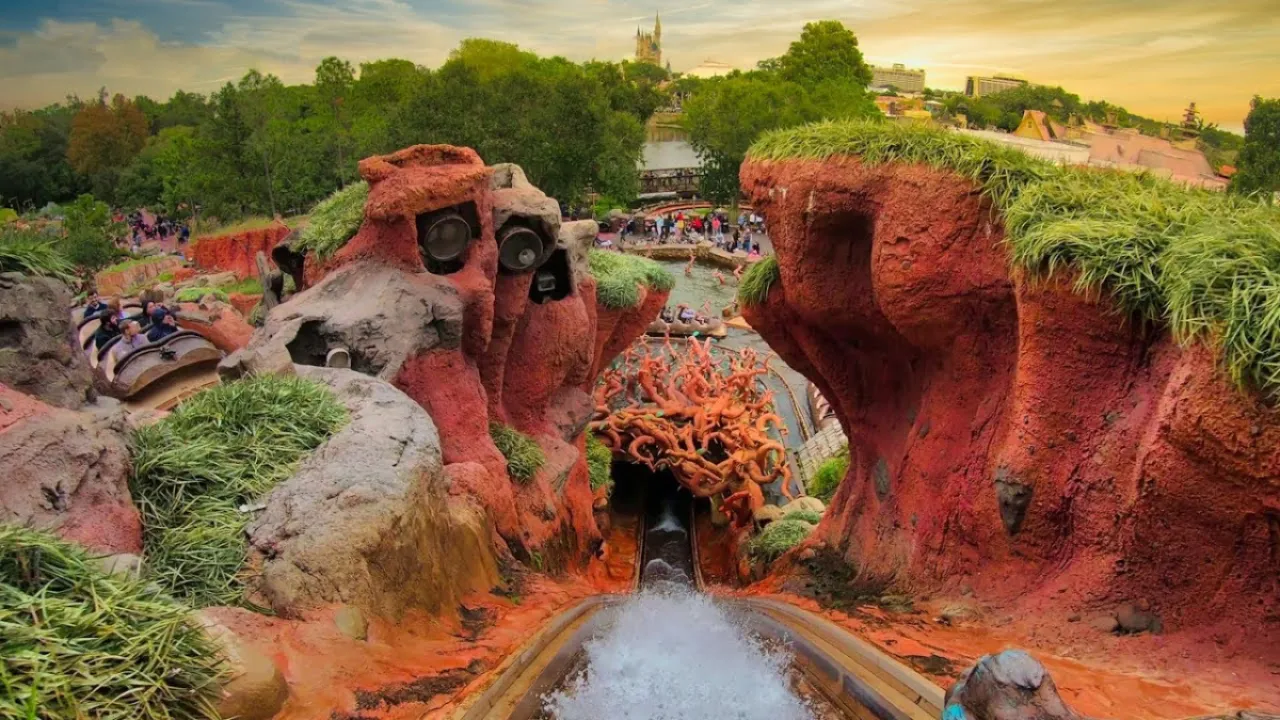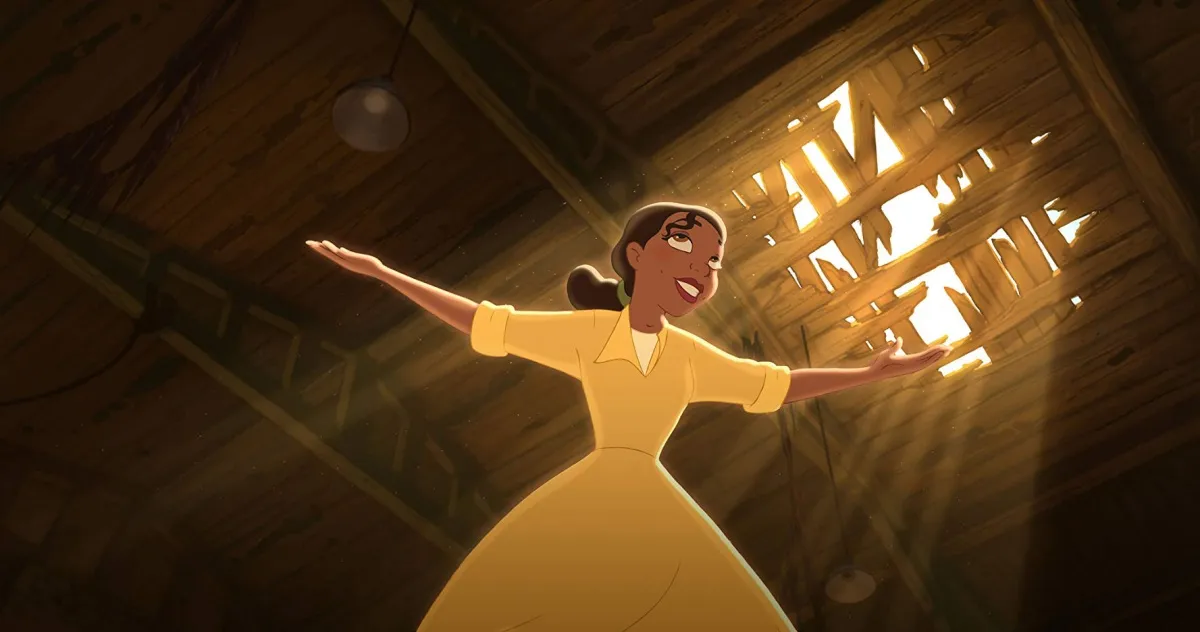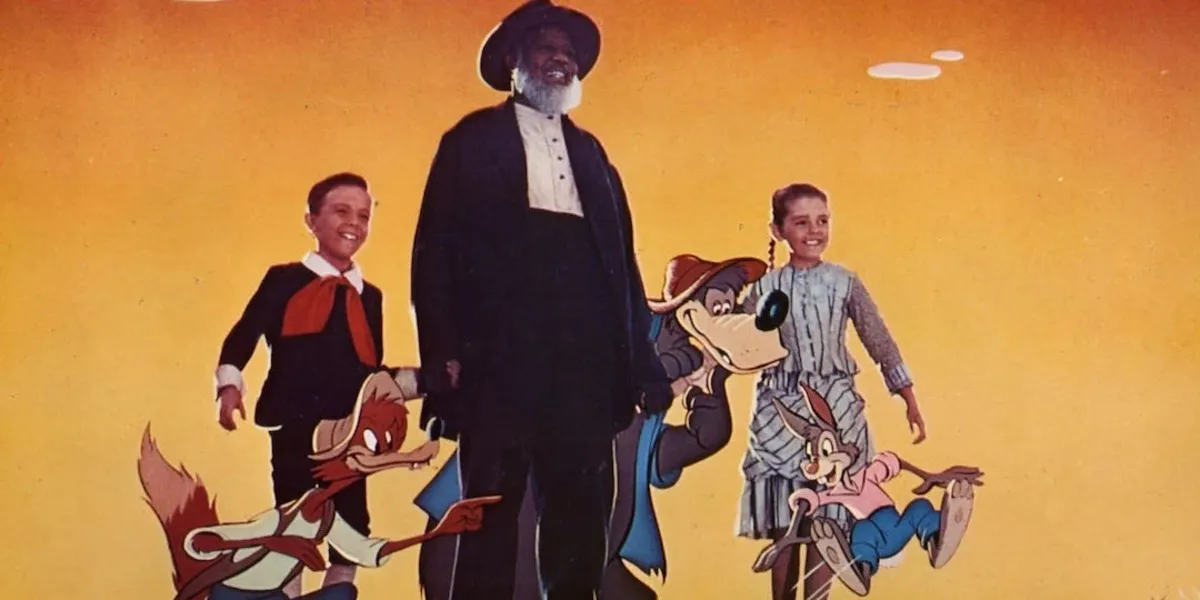
(Warning: This article contains discussion of racial stereotypes and harmful slurs.)
Splash Mountain has been a staple of several of Disney’s prominent theme parks for the past three decades. The ride is featured in a total of three theme parks – Disneyland in Anaheim, California, Walt Disney World Resort in Orlando, Florida, and Tokyo Disneyland in Japan. Each park features a slightly different variation of Splash Mountain, but all three follow the same basic structure. Riders board a log boat and embark on a slow ascent narrated by the Song of the South animated characters, Br’er Rabbit, Br’er Fox, and Br’er Bear.
Riders follow Br’er Rabbit as he embarks on an adventure and outsmarts Br’er Fox and Br’er Bear. However, his tale ends with him falling to the safety of his home in the briar patch. After the slow ascent, the riders experience Br’er Rabbit’s fall into the briar patch, too, and it’s quite a drastic drop. The drop is roughly 50 feet down at a 45-degree angle. It is definitely the kind of fall that takes one’s breath away. Additionally, the riders get a refreshing splash of water at the end and have their photo captured on the descent.
The idea was initially conceived by Tony Baxter, who wanted to attract more guests to Bear Country in Disneyland. His idea of a log ride was initially denied until he came up with the idea to incorporate Song of the South into it. Even though the film was already bordering on controversial at the time, Disney liked the idea of adding a backstory to their theme park rides. Song of the South was subsequently approved and opened in 1989 in Disneyland. Walt Disney World and Tokyo Disneyland followed suit and opened their Splash Mountains in 1992. However, the ride’s ties to the controversial Song of the South did come back to haunt it, and that is why the ride’s future is a bit convoluted.
Why is Splash Mountain closing?

Walt Disney World recently announced the closing date for its version of Splash Mountain. The reason for its permanent closure was revealed back in 2020. In June 2020, Disney announced that both Disneyland’s and Walt Disney World’s Splash Mountains would be closing at a later date. The ride had gained increased scrutiny for its ties to the controversial Song of the South over the years. However, the social justice movement sparked by the death of George Floyd in 2020 significantly rekindled calls for a theme change for the ride and even sparked a petition on Change.org that garnered over 21k signatures.
While the social justice movement increased calls for the ride to change, Disney claimed to have been toying with ideas to do just that beginning the year prior. By June 2020, they finally unveiled their plans to close and retheme Splash Mountain. They confirmed that Disneyland and Walt Disney World, at an undisclosed future date, would close their Splash Mountains, retheme them, and re-open them as Tiana’s Bayou Adventure – a ride inspired by the film The Princess and the Frog. In the initial announcement, Disney confirmed that they were seeking to elevate Splash Mountain and find a way to make it more inclusive.
The ride’s new theme also fits with the history of Disney parks. After all, it was Walt Disney himself who opened New Orleans Square in Disneyland in 1966. Hence, it was fitting for one of Disney’s rides to pay tribute to a film set against the backdrop of New Orleans. While Walt Disney World and Disneyland will retheme their Splash Mountain rides, Tokyo Disneyland does not currently have plans to do so with their ride which will remain open.
When will Splash Mountain close?
While Disney’s intentions to close Splash Mountain were announced back in 2020, they didn’t immediately set a closure date. However, on December 2, 2022, Walt Disney World’s Splash Mountain was the first to receive its official closure date. The ride will close permanently on January 23, 2023. Disney World’s Splash Mountain will remain closed until it reopens as Tiana’s Bayou Adventure in 2024. Disneyland has still not received a Splash Mountain closure date.
Is Splash Mountain racist?

Splash Mountain’s closure and re-theming have raised the question of whether Splash Mountain is racist and, for that matter, if a theme park ride can be racist. The thing with Disney rides is that they are rarely just rides. Most Disney theme park rides attempt to tell a story to their guests or tie back to Disney history. This was true of Splash Mountain, but the problem is that it’s storyline and history has racist roots.
Song of the South, which inspired Splash Mountain, was released in 1946. It is about a little boy visiting his grandmother’s plantation and learning life lessons from the allegories of the wise Uncle Remus (James Baskett). One of Song of the South‘s biggest errors is that it fails to explicitly define its timeline. While Disney has claimed that it takes place in the Reconstruction Era, after the Civil War and Emancipation Proclamation, the film makes no mention of this.
So, you might ask, what’s the big deal with not knowing the timeline? Well, when the film has overtly happy notes and features a popular song, “Zip-a-dee-doo-dah” that gushes about sunshine and wonderful days, you do kind of want to accentuate the timeline. Otherwise, it gives the impression of depicting slavery as a utopia where Black slaves and white plantation owners lived in “harmony” – which meant the Black slaves happily accepted their servitude to white people. The overly happy tones just didn’t sit right with either the Civil War or Reconstruction era and seemed to suggest that African Americans should’ve been complacent and happy in their status in society. Also, Disney knows that the film is racist – why else would they have opted to never release the film on home video in the United States?
The film also perpetuates several harmful Black stereotypes, including Uncle Remus as an Uncle Tom figure. Uncle Tom is a trope in which usually middle-aged to elderly Black men are content in their role as a slave or servant to their white bosses and happily dispense wisdom and advice. These caricatures, when set in the Reconstruction or post-Civil War era, as Song of the South is, are especially harmful because they depict the character as a loyal employee (or slave) who longs for a return to the “simplicity” of a romanticized Southern past. The stereotype becomes complicit in slavery and was used to justify the disenfranchisement of the draconian and racist Jim Crow legislation that was enacted at the time.
There’s also the issue of the “tar-baby.” While the fable and its term stem from African (and indigenous South American) folklore, the depiction and term have also become a racial slur. It was originally meant to be a metaphor for a problem that grows worse the more one engages with it, it now is used primarily in a derogatory and offensive manner. The depiction of the “baby” in the film also ties back to the long history of minstrelsy and blackface in America and particularly the American South.
Song of the South is an old offensive film with racist undertones that became more evident in modern society. Meanwhile, Splash Mountain is a theme park ride that tried to carry on the legacy of the film in a different medium, making it racist as well.
(featured image: Screengrab)
—The Mary Sue has a strict comment policy that forbids, but is not limited to, personal insults toward anyone, hate speech, and trolling.—
Have a tip we should know? [email protected]
